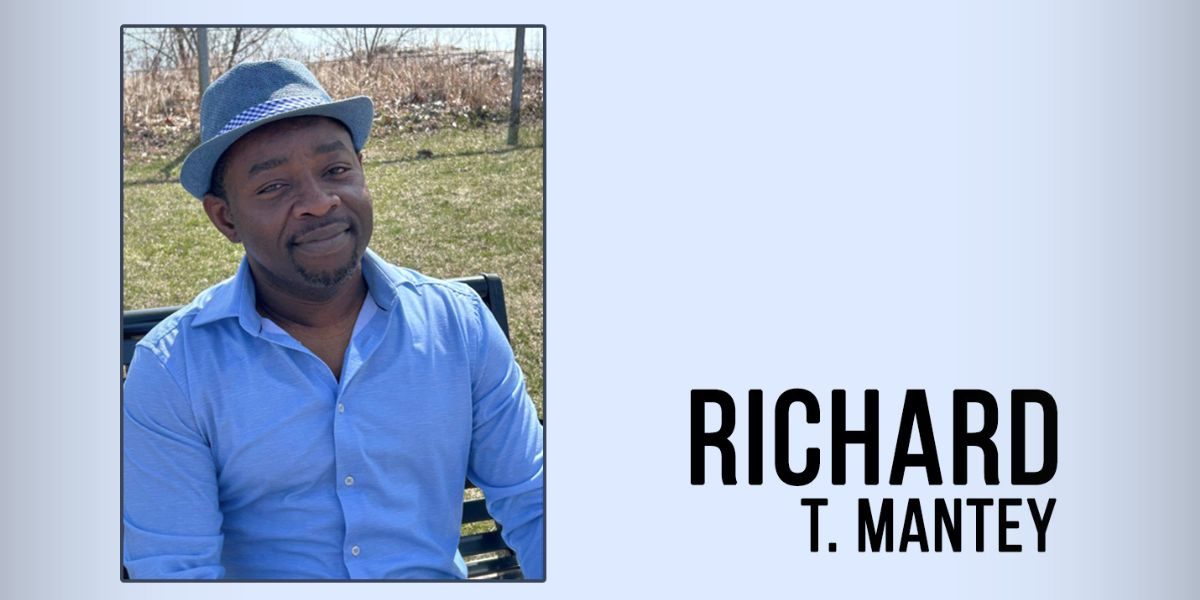By: Elena Mart
In a culture filled with productivity hacks, performance metrics, and constant digital chatter, it’s easy to forget that the loudest voice in our lives isn’t always external; it often comes from within. Author Richard Trillion Mantey is shedding light on this often-overlooked truth with Question Your Thoughts, a work that doesn’t try to sell another quick-fix mantra, but instead invites readers to examine the root of their inner turmoil. Mantey doesn’t present himself as a guru, and that is what makes his work resonate. He doesn’t promise ten steps to happiness or instant transformation. Instead, he offers what feels like a genuine, overdue invitation: to pause, reflect on the dialogue playing endlessly in our minds, and decide whether those thoughts deserve the power we often give them.
Every generation faces its own defining challenges. For this one, it’s not just climate anxiety, political division, or economic strain; it’s the mental exhaustion caused by information overload. With constant notifications and the pressure to curate “perfect” versions of our lives online, our minds rarely experience stillness. Question Your Thoughts arrives in this context, and it’s why Mantey’s message feels not like a coincidence, but perhaps more like a timely necessity. What makes his message compelling is its simplicity. Thoughts, he suggests, are not always facts. They are interpretations. Narratives. Passing clouds. By making this distinction, Mantey begins to loosen the foundation on which much of our stress and self-doubt rests. While that may seem like common sense, anyone who has lost sleep replaying a mistake or spiraled from a single anxious “what if” knows how significant this reframing can be.
He introduces tools like reflection, journaling, and mindful breathing, but he does not present them as universal solutions. Instead, he offers them as possibilities, encouraging readers to experiment, adapt, and discover what resonates with them personally. This approach makes Question Your Thoughts feel more like a compass than a roadmap. The difference is important. A map tells you exactly where to go. A compass points you toward true north while leaving you the freedom to choose the path. For a readership weary of being told how to live, Mantey’s method feels refreshing, offering empowerment rather than prescription.
What sets the book apart from much of the mindfulness genre is its insistence that even the smallest, most ordinary thoughts deserve our attention. It isn’t only about major life decisions or existential crises. It’s about those quiet beliefs that go unnoticed in the background: I’m not good enough. They must be upset with me. I’ll probably fail again. By drawing attention to these seemingly mundane mental loops, Mantey shows how deeply they can influence our lives. Our thoughts shape our emotions, which in turn affect our actions, which eventually become our reality. The logic is simple, but the implications are profound: if we don’t challenge our thoughts, we risk building an entire life based on assumptions we never questioned.
The relevance of Question Your Thoughts goes far beyond the wellness section of bookstores. It reaches the professional facing burnout, the student struggling with self-comparison, and the parent silently wrestling with fear. In each of these cases, the common thread is the same: unexamined thoughts that drive behavior, shape identity, and subtly dictate quality of life.

Richard Trillion Mantey is a respected voice in personal development and mindfulness, known for guiding individuals toward inner clarity and emotional freedom. His work through writing, mentoring, and speaking has empowered many readers to challenge limiting beliefs and build lives centered around authenticity and peace.
Question Your Thoughts may be written in gentle tones, but the ideas within carry weight. Its quiet strength lies in its refusal to dramatize, hype, or overpromise. Instead, it offers a steady hand to readers, gently reminding them that peace of mind is not something we earn from external sources, but something we uncover internally, one thought at a time.
In the end, Mantey’s book doesn’t just teach mindfulness; it reframes it as an act of courage. To sit with one’s own mind, to question the stories it tells, and to decide which ones are worth believing—this is the quiet revolution he invites readers to join. To learn more, explore his work, upcoming projects, and resources for building clarity and mindfulness in everyday life by visiting his website.
Disclaimer: The content presented in this article is for informational purposes only and should not be considered as professional advice. Results may vary from person to person, and readers are encouraged to seek professional guidance when necessary.

















